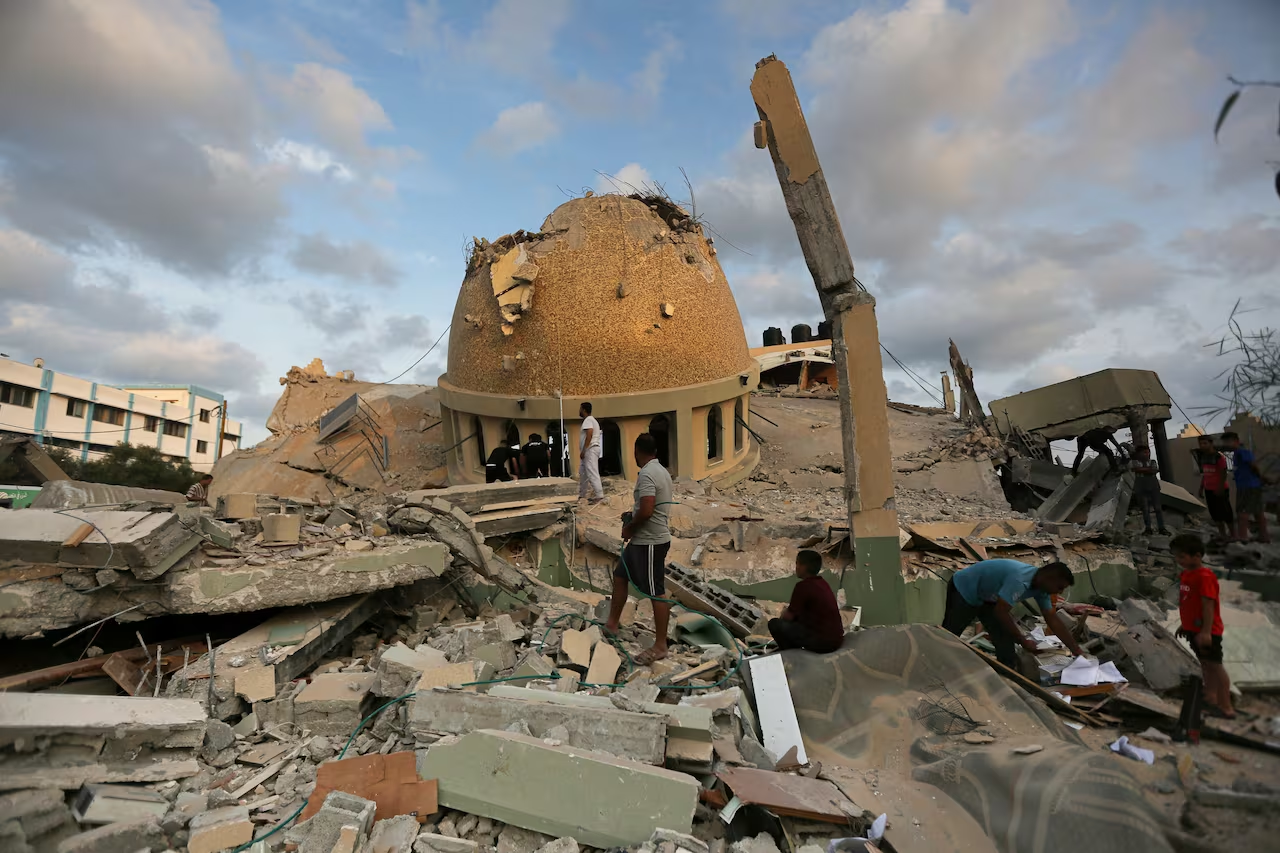Qatar Steps Back as Key Mediator in Gaza: Withdrawal Signals Growing Frustration Over Deadlocked Ceasefire Negotiations
Qatar, a crucial mediator in Gaza ceasefire negotiations and hostages’ release, has withdrawn from its role as an intermediary, signaling mounting frustration over the stalled truce efforts between Israel and Hamas. This shift, relayed to the AFP by a diplomatic source on the condition of anonymity, highlights Qatar’s concerns about the challenges in facilitating constructive talks amid rising political tensions.
For months, Qatar, in collaboration with the United States and Egypt, has sought to broker a ceasefire agreement in Gaza, including the release of hostages and prisoners from both sides. Despite these efforts, the talks have made little progress, leading Qatar to reassess its mediation stance.
“The Qataris informed both the Israelis and Hamas that, without a sincere commitment to negotiating a fair deal, they cannot continue mediating,” the source stated, Reuters.
In addition to the ceasefire discussions, Qatar’s decision reflects its shifting stance on the Hamas political office based in Doha. The office, which has housed Hamas’s leadership since 2012 with U.S. approval, has served as a channel for communication, especially after Hamas’s October 7 attack on Israel.

However, Qatar’s recent statement suggested that, given the lack of good faith in negotiations, the office might “no longer serve its purpose.” This implies that Qatar could reconsider allowing Hamas’s leadership to remain in Doha, possibly signaling a new approach to future mediations.
Qatar’s diplomatic source clarified that Doha had already informed both Israel and Hamas, as well as U.S. officials, of this recalibrated stance. Qatar further conveyed to the U.S. that it would be open to resuming mediation only if both parties showed a clear intent to return to the negotiating table in good faith.
Home to a significant U.S. military base, Qatar has hosted Hamas’s political wing as part of its unique role in the Middle Eastern diplomatic landscape. The U.S. and Israeli governments had previously backed the establishment of this office as a means to maintain a viable communication line with Hamas.
In April, as criticism from U.S. and Israeli politicians mounted, Qatar hinted at reevaluating its mediation role in the conflict. At that time, Doha also issued a similar message regarding the future of the Hamas office, which led some of its officials to briefly relocate to Turkey. However, upon request from both the U.S. and Israeli governments—who found Turkey-based negotiations to be ineffective—Hamas’s political leaders returned to Qatar.
READ ALSO: South Africa and Seven Other Nations Line Up to Import Fuel from Dangote Refinery
Despite multiple negotiation attempts, including a temporary one-week ceasefire last year during which Hamas released several hostages, talks have consistently failed to achieve a durable peace. The latest U.S.-Qatar-led initiative also ended in an impasse, suggesting that neither side was willing to make the concessions necessary for progress.
The diplomatic source noted that Qatar had grown increasingly concerned that the mediation efforts were evolving into more of a political maneuvering tool, rather than a sincere bid for peace. With U.S. elections approaching and the close of President Joe Biden’s term, Qatar observed that the mediation process had become politicized, overshadowing the pursuit of a viable resolution.
Expressing dissatisfaction over what it viewed as political exploitation, Qatar reportedly advised the U.S. and both parties involved that it would not continue mediating if it became a pawn in broader political calculations. Qatar’s decision underscores its firm stance against any manipulation of its diplomatic efforts for electoral or political gain.

While Qatar has temporarily stepped back, it remains open to re-engaging in negotiations if both Israel and Hamas show genuine interest in reaching a peace deal. For now, however, the decision to withdraw as a mediator conveys a clear message: Qatar will not allow its role to be compromised or exploited by any party unwilling to commit earnestly to conflict resolution.
As diplomatic channels in the region continue to fluctuate, Qatar’s recalibrated stance could inspire other international stakeholders to evaluate their roles in mediation efforts. This change may also prompt a reassessment of strategies on both sides, creating an opportunity for renewed, sincere dialogue.
The future of Gaza peace negotiations remains uncertain, but Qatar’s withdrawal as a mediator could serve as a wake-up call for those genuinely invested in achieving a lasting truce.
Discover more from Cine critique
Subscribe to get the latest posts sent to your email.

